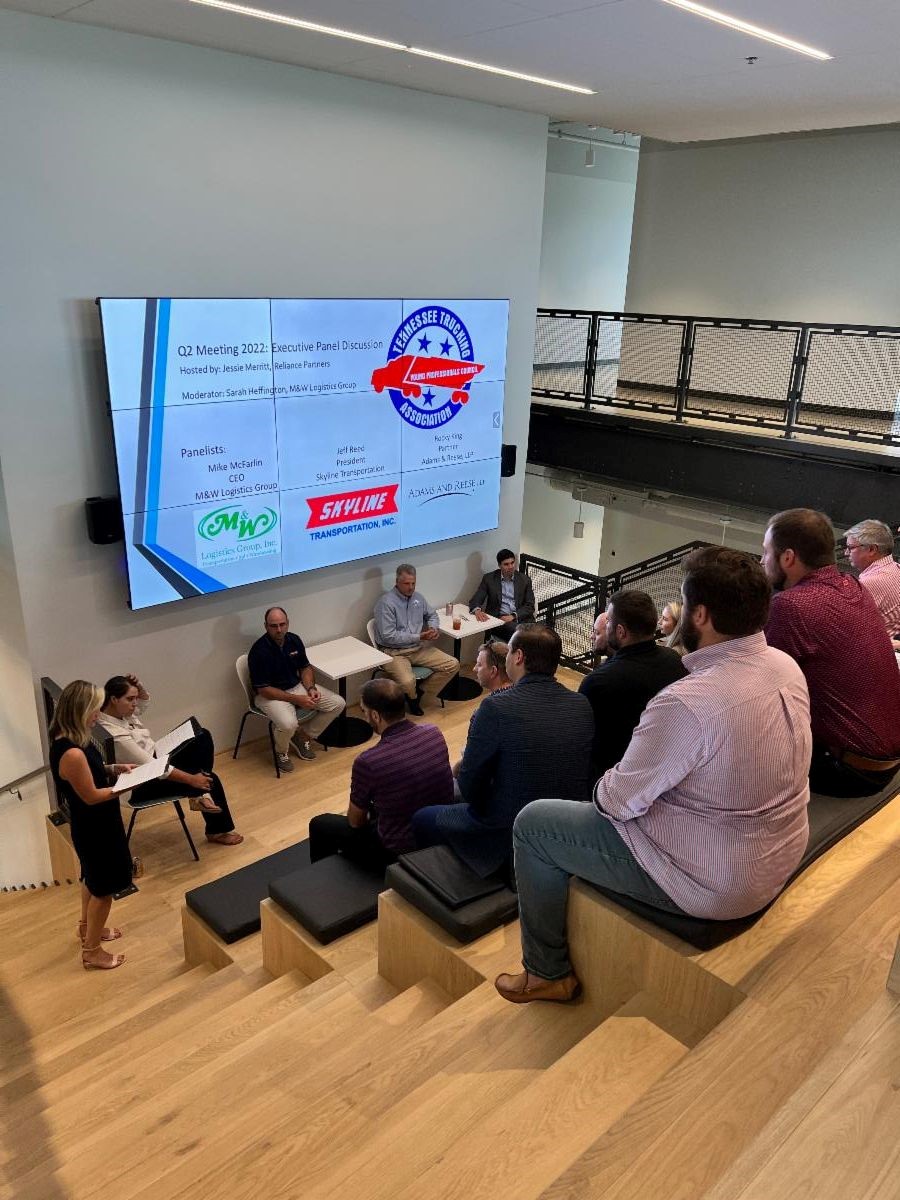STATE REPRESENTATIVE PAT MARSH, LONGTIME TRUCKING EXECUTIVE, RECEIVES TENNESSEE TRUCKING ASSOCIATION’S PINNACLE AWARD
State association’s highest honor bestowed for the first time in eight years to longtime industry veteran and state leader
NASHVILLE, TN (September 2022) – State Representative Pat Marsh, a pioneer in the trucking industry whose career has spanned nearly 60 years, has been named a recipient of the Pinnacle Award, the highest honor bestowed by the Tennessee Trucking Association (TTA), for his lifetime commitment to and advocacy for the industry. Marsh is just the thirteenth recipient of the prestigious award in its 28-year history, presented only when an individual is identified for demonstrating uncommon service and dedication to the industry.
“Since its origination in 1994, the Pinnacle Award has been presented to a select few of TTA’s most influential and effective members who have made lasting contributions to the state’s trucking industry,” said Donna England, TTA President & CEO. “As the first to receive this award since 2014, Pat epitomizes what the Pinnacle Award stands for. His years of experience have proven invaluable as a leader for the TTA and as an advocate for the industry as a state legislator.”
A native of Lincoln County, Marsh graduated from the University of Tennessee-Knoxville with a business degree in Transportation before embarking on a career in the automotive industry. In 1973, he left a job with the Ford Motor Company in Nashville and moved to Shelbyville to join Goggin Truck Line, a small company with six tractors and twelve trailers. He eventually bought the company and grew it to 500 tractors and 1000 trailers while employing over 1,000 people. In 1995, Marsh sold the company and started another trucking company, Big G Express, with his brother Jack.
Marsh was elected to the Tennessee State Legislature in October of 2009 to represent the 62nd District, which includes Bedford and parts of Lincoln Counties. In 2021, he was selected by his fellow state House members to serve in the role of Speaker Pro Tempore for the 112th General. He also serves on several legislative committees, including the Transportation Committee. Since being elected to the Legislature, Marsh has helped pass numerous bills that have a positive impact on the trucking industry, including funding for improvements to highways, roads and bridges across the state.
“It was an honor for me to be a recipient of the Pinnacle Award in 2012, and I believe Pat was an ideal choice to be added to the list of those who have received this prestigious honor,” said Dale Allen, Partner, Adams and Reese LLP. “Throughout his business and political careers, Pat has made countless contributions that have benefited Tennessee’s trucking industry and thus all Tennesseans.”
Marsh joins an elite group of previous TTA Pinnacle Award winners, including Governor Ned McWherter (1994), Phillip B. George (1995), Forrest M. Durrett (1996), Tommy L. Wilson (1997), Kelly Wagner (1998), G. Tommy Hodges (2005), Gary Sasser (2006), Tommy Ross (2008), J.B. Baker (2009), David Dortch (2010), Bill Reed, Jr. (2011), Dale Allen (2012), and Dave Huneryager (2014).
“To be mentioned among these trailblazers who’ve made such an incredible impact on the industry is truly an honor,” said Marsh. “I’ve been very fortunate to work with individuals who have a passion for the industry and are dedicated to doing things the right way. I think that experience as a businessperson has greatly impacted my work in state government. It has been a privilege to serve Tennessee’s trucking industry, a vital part of keeping our state’s economy moving forward.”
The Pinnacle Award was presented to Marsh at TTA’s 92nd Annual Convention September 18-20 at the Hilton Sandestin Beach Golf Resort & Spa. For those who would like to make a donation in Rep. Marsh’s name to the Tennessee Trucking Foundation, which is dedicated to highway safety, education and other charitable causes throughout the state, more information can be found here: Give Online (icheckgateway.com)
About Tennessee Trucking Association (TTA)
Founded in 1930, TTA was forged out of the belief that a strong, unified industry would be essential in remaining effective and profitable in the future. Today, TTA is the driving force and the voice of the trucking industry in Tennessee. As an independent, non-profit trade association representing trucking companies and industry vendors, TTA exists to encourage the healthy growth and betterment of its more than 400 members statewide. TTA represents an important engine of Tennessee’s economy, supporting over 200,000 jobs and the safe transport of goods across the state.
The Tennessee Trucking Association is an affiliate of the American Trucking Associations.
####





